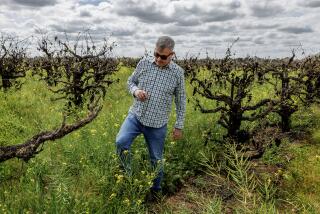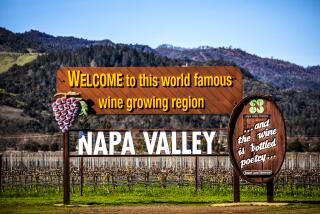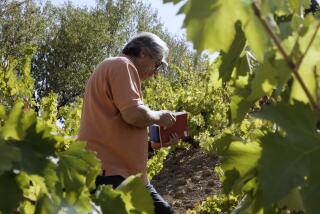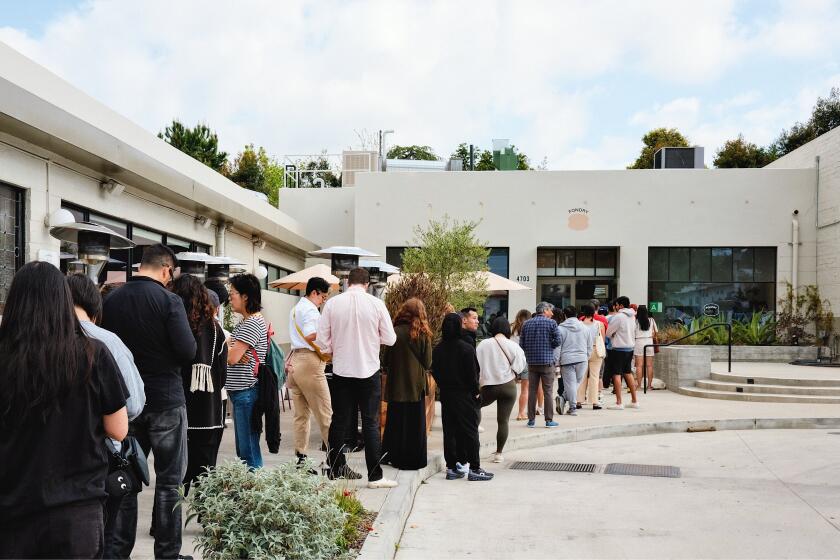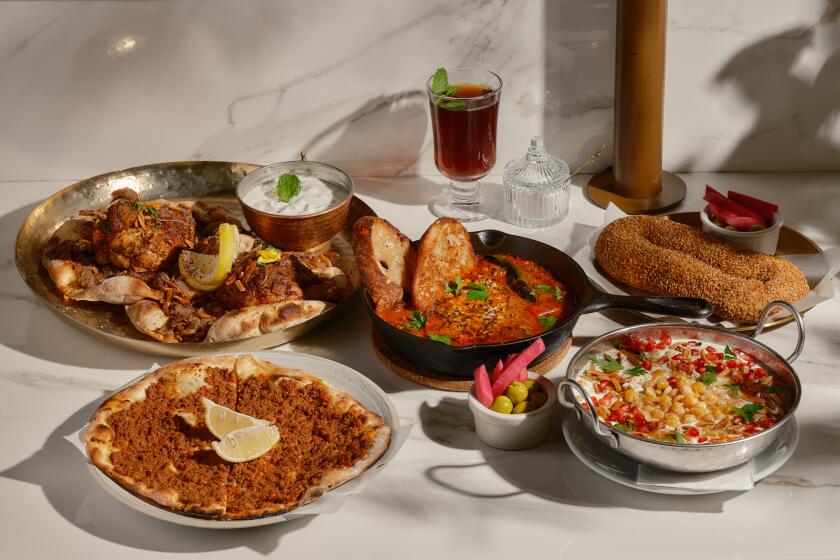Robert Haas, influential American vintner and wine importer, dies at 90
Robert Haas, one of the leading lights of the American wine industry, died Sunday from complications of pneumonia at his home in Templeton, Calif. He was 90.
As a wine producer, importer, marketer, prognosticator and industry sage, Haas was instrumental in shaping the country’s wine tastes, elevating the quality of wines imported, lending sophistication to the country’s buying efforts and most importantly expanding the market with new regions, varieties and flavors, many of which were all but unexplored here until he introduced them.
For the record:
1:25 p.m. March 20, 2018An earlier version of this story said that Haas died in Chester, Vt., and that Tablas Creek Vineyard was founded in 1985.
With his pioneering import company, Vineyard Brands, he created an unflaggingly inclusive, cooperative, open-armed business model, reestablishing industry connections between Europe and the United States that Prohibition and the World Wars had all but obliterated. Few had a more thoughtful, canny and generous vision of the industry and its future. His advocacy for the wines of Burgundy, the Rhone, and Alsace changed the stature of those wines in this country irrevocably.
“We will miss him greatly,” wrote Francois Perrin of Chateau de Beaucastel in the Rhone Valley, whose family had a partnership with the Haases for more than 50 years. “He accompanied us throughout our lives, and helped us to understand what great wine is, a product of its terroir and the men who produced it. For everything, we are extremely grateful to him.”
Haas was born in Brooklyn in 1927, and raised in Scarsdale, N.Y. After completing studies at Yale in 1950, his intention was to pursue engineering, but his father, a New York wine and spirits retailer, had other plans. Sidney Haas owned Lehmann Bros., one of the first Manhattan retail shops to be granted an alcohol sales license after Prohibition (it’s known today as Sherry-Lehmann). Haas sent his son off to France to seek out wines and producers they could work with in their Manhattan shop.
For 20 years, Robert Haas served as his father’s envoy in France, establishing relationships with producers whose wines they could bring in to their store, where interest in wine was inexorably overtaking interest in spirits.
“It was definitely a buyer’s market, from 1936 to 1955,” Haas told me in an interview in 2009, “not an affluent business. You had great Bordeaux like [Chateau] Lafite selling for $3.50 a bottle; if you were from some other part of France, what could you do with prices so deflated?”
Haas established relationships then that were groundbreaking at the time — he was the first to import Chateau Petrus, the legendary Bordeaux producer, after World War II.
But Bordeaux was competitive, so he set his focus on Burgundy and, eventually, the Rhone Valley. When he founded his import company, Vineyard Brands, in 1973, he established the market for what are now considered to be some of France’s most important, iconic producers, including Dauvissat in Chablis; Henri Gouges, Etienne Sauzet and Mongeard Mugneret in Burgundy; and Domaine Weinbach in Alsace.
But perhaps his most important partnership was with the Perrin Family, owners of Chateau de Beaucastel in Chateauneuf du Pape, in France’s southern Rhone Valley. In 1966, Haas met Jacques Perrin, the region’s great innovator. They maintained a close relationship until the Perrin’s death in 1977.
By the mid-’80s, the Perrin sons, Jean-Pierre and Francois, were making frequent visits to California, selling wine and touring the nascent wine regions of the Central Coast; eventually the discussion wended to the prospect of launching a California wine project with Haas.
In 1989, they found a property in Paso Robles and called it Tablas Creek. It would focus on the grape varieties the Perrins employed in the southern Rhone Valley; grapes like Grenache, Roussanne, Mourvedre, Counoise, Grenache Blanc and Syrah. They believed these would thrive in California’s climate, which they took to be similar to their own in the southern Rhone. It was the first French investment of the American Rhone movement and became a signal validation for the category.
At the time there were pockets of Rhone varieties in the United States, but neither the Perrins nor the Haas families were confident the plant material was good enough.
“Right from the beginning,” said Haas, “We knew we were going to bring in our own material, and our own rootstocks.” All of this material was selected by the Perrin family from the best that French nurseries had to offer — often it was even more pristine than that found in the vineyards of Beaucastel. They propagated vines to sell to neighbors, to friends, to competitors, contributing not only to the availability of exceptional clonal material, but to the reputation of the Rhone plantings across the country.
Less than a decade later, in 1991, Haas organized the International Colloquium on Rhone Varieties, an unprecedented meeting between French Rhone producers and the dozen or so producers of Rhone varieties on American soil, to compare notes, methods and markets. It led to lasting transatlantic friendships and channels of cooperation that continue to this day.
Short and soft-spoken, Haas was an incisive, deceptively shrewd businessman. From his first visits to California wine country he saw opportunities, and he was the first to sell the wines of many then-new California brands on the East Coast, including Clos du Val, Freemark Abbey, Chappellet and Joseph Phelps. In 1997, Haas sold Vineyard Brands to its employees; his son Daniel still manages that business, while Jason, his youngest son, serves as general manager for Tablas Creek.
In lieu of flowers, the family suggests a donation to the Foundation for the Performing Arts Center in San Luis Obispo at fpacslo.org.
More to Read
Eat your way across L.A.
Get our weekly Tasting Notes newsletter for reviews, news and more.
You may occasionally receive promotional content from the Los Angeles Times.
